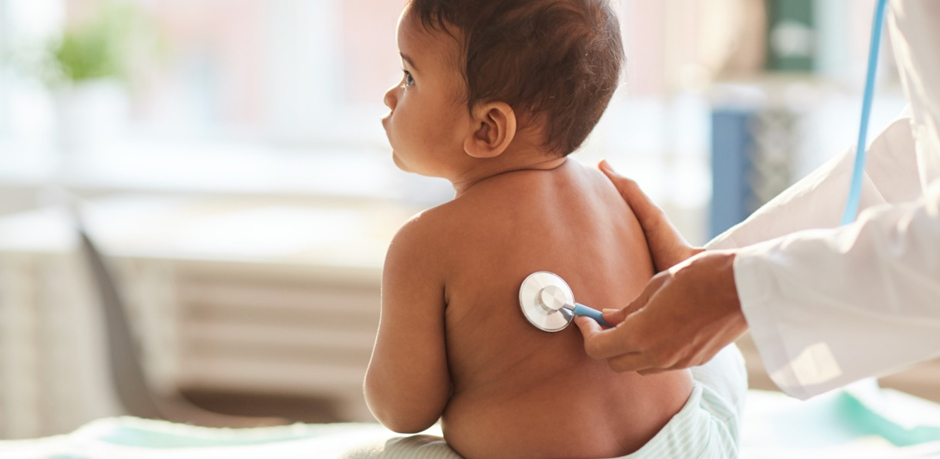About Child Vaccination Centre

Child vaccinations have played a significant role in reducing the prevalence of various infectious diseases worldwide. By stimulating the immune system to produce protective antibodies, vaccines help prevent serious illnesses and complications. However, like any medical intervention, vaccinations may cause side effects, although they are generally mild and short-lived. In this article, we will delve into the importance of child vaccinations, explore common symptoms that may arise after vaccination, and discuss appropriate treatments to manage these symptoms. Dr. Dhaval Shah has the Best Child Vaccination Centre In Ghansoli.
Importance of Child Vaccinations:
Childhood vaccinations are essential for individual health and public health. They provide immunity against numerous diseases such as measles, mumps, rubella, polio, whooping cough, and more. Immunizing children helps create a protective barrier known as "herd immunity," preventing the spread of diseases within a community. Herd immunity is particularly crucial for those who cannot receive vaccines due to age, medical conditions, or allergies. By ensuring a high vaccination rate, we protect vulnerable populations and limit the potential for outbreaks. Dr. Dhaval Shah has Best Child Vaccination Centre In Ghansoli.
Common Childhood Vaccinations and Recommended Schedule:
The vaccination schedule for children is carefully planned to provide optimal protection at different stages of development.
Common vaccines administered during childhood include:
- class="columns">
- Diphtheria, Tetanus, and Pertussis (DTaP): Protects against three bacterial infections.,
- Haemophilus Influenzae Type B (Hib): Prevents bacterial meningitis and other infections.,.
- Measles, Mumps, and Rubella (MMR): Guards against three viral diseases.
- Polio (IPV): Prevents poliomyelitis, a viral infection affecting the nervous system.
- Hepatitis B (HepB): Protects against hepatitis B virus, which can lead to liver damage.
- Pneumococcal Conjugate Vaccine (PCV): Provides protection against pneumococcal diseases.
- Varicella (chickenpox): Shields against the varicella-zoster virus causing chickenpox.
- Influenza (seasonal flu): Annual vaccination to prevent seasonal flu.Dr. Dhaval Shah has the Best Child Vaccination Centre In Ghansoli.
Common Symptoms after Vaccination:
After receiving vaccinations, some children may experience mild side effects. These symptoms typically occur within a few hours to a couple of days after the vaccination and generally resolve on their own.
Common post-vaccination symptoms include:
- class="columns">
- Soreness or redness at the injection site: This is the most common side effect and occurs with many vaccines.
- Mild fever: A low-grade fever might develop, but it usually subsides quickly.
- Fatigue or fussiness: Some children may feel tired or irritable after vaccination.
- Loss of appetite: Temporary loss of appetite is not uncommon.
- Swelling of lymph nodes: Occasionally, lymph nodes near the injection site may become slightly swollen.Dr. Dhaval Shah is Best Child Vaccination Centre In Ghansoli.
Treatment for Post-Vaccination Symptoms:
Most post-vaccination symptoms require minimal intervention, and children usually recover without any specific treatment.
- class="columns">
- Comfort and reassurance: Offering comfort and reassurance can help soothe a child who may be feeling uneasy after the vaccination.
- Applying a cool compress: If the injection site is sore, applying a cool compress can provide relief.
- Over-the-counter pain relievers: For children older than six months, acetaminophen or ibuprofen can be administered following the appropriate dosage instructions to alleviate discomfort or reduce fever.However, it is essential to consult a healthcare provider before giving any medication to young children. Dr Dhaval Shah is Best Child Vaccination Centre In Ghansoli.
When to Seek Medical Attention:
- class="columns">
- Severe allergic reactions: If a child experiences signs of a severe allergic reaction, such as difficulty breathing, hives, or swelling of the face and throat, seek emergency medical attention immediately. Severe allergic reactions are rare but can be life-threatening.
- High fever: If a child develops a high fever (usually above 102°F or 39°C) after vaccination, it's essential to consult a healthcare professional.
- Prolonged or worsening symptoms: If the child's symptoms persist or worsen, medical advice should be sought to rule out any underlying issues. Dr. Dhaval Shah is Best Child Vaccination Centre In Ghansoli.
Conclusion:
Child vaccinations are a critical component of public health, safeguarding individuals and communities from potentially severe infectious diseases. While mild side effects may occur after vaccination, these are signs that the body's immune system is responding to the vaccine and building immunity. Most post-vaccination symptoms are short-lived and do not require specific treatment. However, it is crucial for parents to be aware of any severe reactions or persisting symptoms and seek medical attention when necessary. By following the recommended vaccination schedule and staying informed, parents can make informed decisions to protect their child's health and well-being. Dr. Dhaval Shah is Best Child Vaccination Centre In Ghansoli.
Copyright © 2023, Dr. Dhaval Shah. All Rights Reserved.


